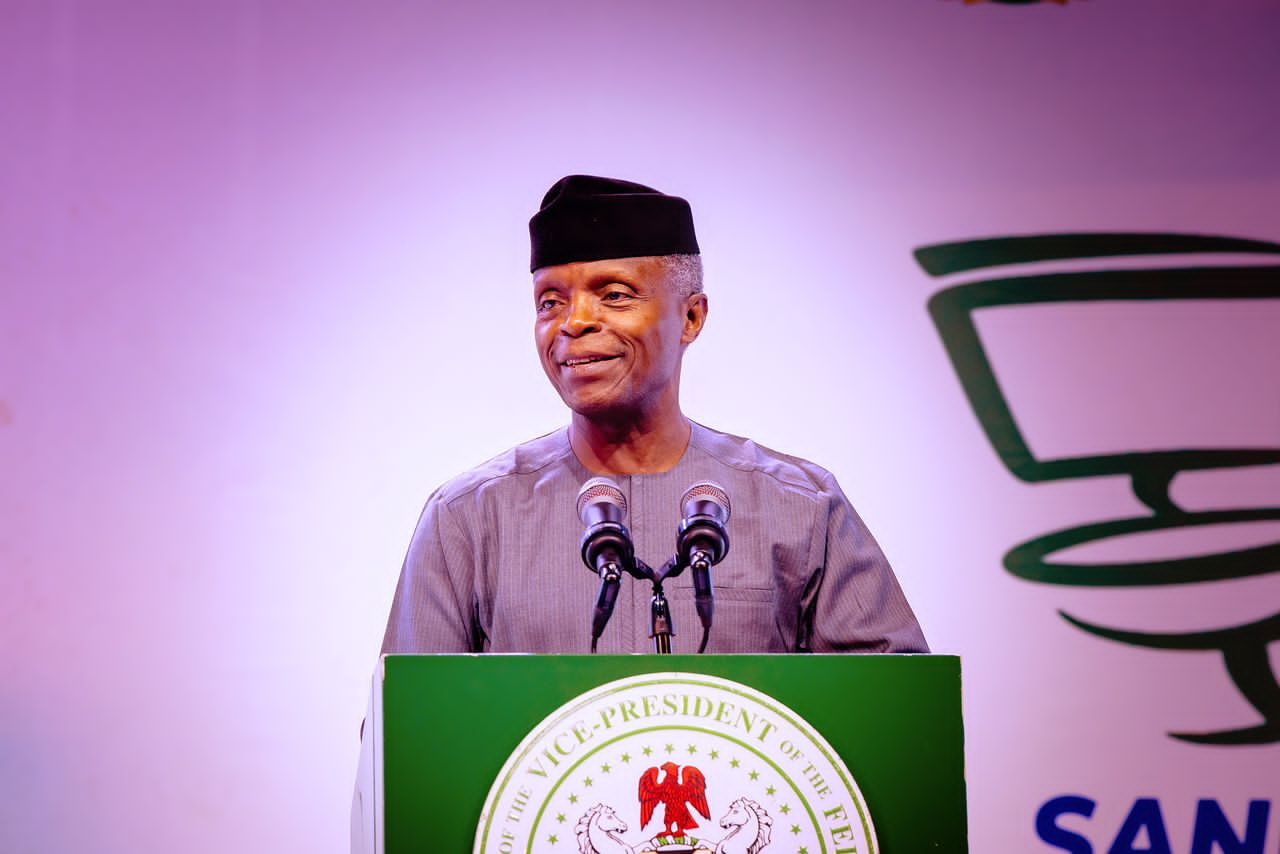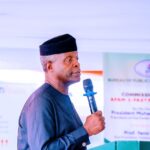Nigeria can produce the highest quality individuals to run the most efficient governments and private institutions if we teach the right values not only in our institutions of learning, but also imbibe a national ethic of hard work.
Vice President Yemi Osinbajo, SAN, stated this in Abeokuta, Ogun State, while delivering the Centenary Lecture of Baptist Boys’ High School (BBHS) in the state capital.
Speaking on the topic “Values: the difference between success and failure,” Osinbajo urged that an ethical revolution is necessary to fast-track the country’s development towards becoming a great nation indeed.
According to the VP, there was need for a national consensus, especially among the political, religious and business elite, in accepting and implementing minimum ethical standards, “where we establish a national work ethic, of honesty, hardwork, thrift and the deferment of gratification.”
- Monies borrowed under Buhari thrown away – Peter Obi
- CBN: Emefiele is back, will keep performing duties directed by Buhari
Explaining this, Osinbajo noted that, “it is what is taught and learned that shapes the character of individuals and nations. But it is not just teaching, governments must lead this ethical revolution, by rewarding ethical behaviour and ensuring speedy punishment for misconduct.
“The religious elite must reinforce the ethical direction agreed by showing that wealth, and influence are built by hard work, diligence and the deferment of gratification and not just by miracles. The religious elite must also reject and ostracize public officers and persons whose wealth cannot be explained or is clearly from shady or suspicious sources. Every modern society has had to deal with corruption, and enthrone minimum ethical standards to succeed, we must do the same.”
The Vice President, referencing the earlier section of the ceremony where the Commemorative Centennial Obelisk with the names of the distinguished centennials inscribed upon it was unveiled, observed that the same values of integrity, hard work and trustworthiness are what makes individuals, institutions and nations great.
He said, “The difference between men and women who attain significance and those who do not is values. So, it is also the case that the difference between successful societies or countries and failed or failing countries is values.
“Venezuela has one of the largest oil deposits in the world but the UN estimates that 94% of its citizens are poor. The Great Lakes region in Africa has some of the world’s richest mineral deposits, yet the countries in the region are some of the poorest in the world. On the other hand, some of the wealthiest countries in the world and those that have the most companies listed on the Nasdaq are Israel, China, Hong Kong, Taiwan, India, South Korea and Singapore — none of which have any natural resources.”

 Join Daily Trust WhatsApp Community For Quick Access To News and Happenings Around You.
Join Daily Trust WhatsApp Community For Quick Access To News and Happenings Around You.


